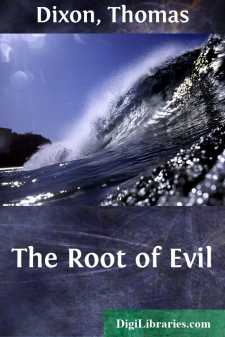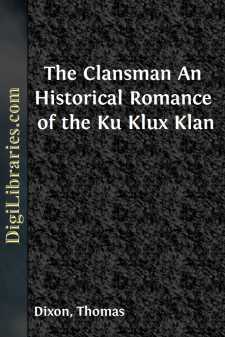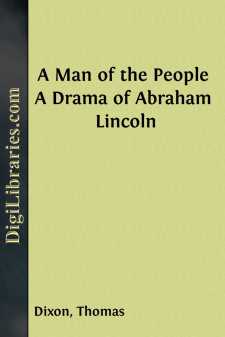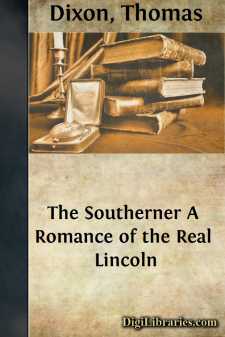Categories
- Antiques & Collectibles 13
- Architecture 36
- Art 48
- Bibles 22
- Biography & Autobiography 813
- Body, Mind & Spirit 142
- Business & Economics 28
- Children's Books 17
- Children's Fiction 14
- Computers 4
- Cooking 94
- Crafts & Hobbies 4
- Drama 346
- Education 46
- Family & Relationships 57
- Fiction 11829
- Games 19
- Gardening 17
- Health & Fitness 34
- History 1377
- House & Home 1
- Humor 147
- Juvenile Fiction 1873
- Juvenile Nonfiction 202
- Language Arts & Disciplines 88
- Law 16
- Literary Collections 686
- Literary Criticism 179
- Mathematics 13
- Medical 41
- Music 40
- Nature 179
- Non-Classifiable 1768
- Performing Arts 7
- Periodicals 1453
- Philosophy 64
- Photography 2
- Poetry 896
- Political Science 203
- Psychology 42
- Reference 154
- Religion 513
- Science 126
- Self-Help 84
- Social Science 81
- Sports & Recreation 34
- Study Aids 3
- Technology & Engineering 59
- Transportation 23
- Travel 463
- True Crime 29
The One Woman
by: Thomas Dixon
Description:
Excerpt
CHAPTER I
THE MAN AND THE WOMAN
"Quick—a glass of water!" A man sprang to his feet, beckoning to an usher.
When he reached the seat, the woman had recovered by a supreme effort of will and sat erect, her face flushed with anger at her own weakness.
"Thank you, I am quite well now," she said with dignity.
The man settled back and the usher returned to his place and stood watching her out of the corners of his eyes, fascinated by her beauty.
The church was packed that night with more than two thousand people. The air was hot and foul. The old brick building, jammed in the middle of a block, faced the street with its big bare gable. The ushers were so used to people fainting that they kept water and smelling-salts handy in the anterooms. The Reverend Frank Gordon no longer paused or noticed these interruptions. He had accepted the truth that, while God builds the churches, the devil gets the job to heat, light and ventilate them.
The preacher had not noticed this excitement under the gallery, but had gone steadily on in an even monotone very unusual to his fiery temperament.
A half-dozen reporters yawned and drummed on their fingers with their pencils. The rumour of a brewing church trouble had been published, but he had not referred to it in the morning, and evidently was not going to do so to-night.
Toward the close of his sermon he recovered from the stupor with which he had been struggling and ended with something of his usual fervour.
He was a man of powerful physique, wide chest and broad shoulders, a tall athlete, six feet four, of Viking mould, hair blond and waving, steel-gray eyes, a strong aquiline nose and frank, serious face.
He had been called from a town in southern Indiana to the Pilgrim Congregational Church in New York when, on its last legs, it was about to sell out and move uptown. He had created a sensation, and in six months the building could not hold the crowds which struggled to hear him.
His voice was one of great range and its direct personal tone put him in touch with every hearer. Before they knew it his accents quivered with emotion that swept the heart. Emotional thinking was his trait. He could thrill his crowd with a sudden burst of eloquence, but he loved to use the deep vibrant subtones of his voice so charged with feeling that he melted the people into tears. His face, flashing and trembling, smiling and clouding with hidden fires of passion, held every eye riveted. His gestures were few and seemed the resistless burst of enormous reserve power—an impression made stronger by his great hairy blue-veined hands and the way he stood on his big, broad feet. He spoke in impassioned moments with the rush of lightning, and yet each word fell clean-cut and penetrating.
An idealist and dreamer, in love with life, colour, form, music and beauty, he had the dash and brilliancy, the warmth and enthusiasm of a born leader of men. The impulsive champion of the people, the friend of the weak, he had become the patriot prophet of a larger democracy....








